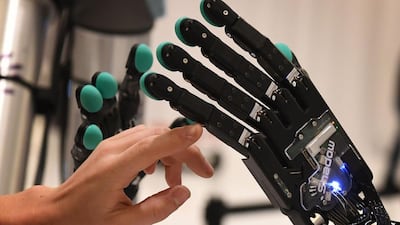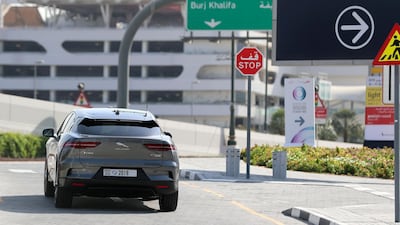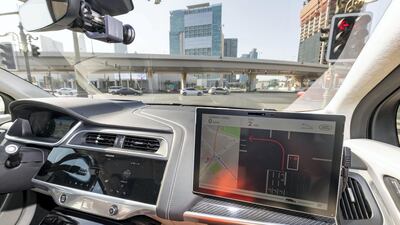At the Aqdar World Summit in Moscow last month, the Minister for Artificial intelligence, Omar Al Olama, spoke enthusiastically about advances in instant translation.
Within a short time, he predicted, it would be possible to communicate instantly and accurately in any language in the world, despite not knowing a single word.
Such a tool has obvious applications in the UAE, where by some estimates there are 200 nationalities in residence.
It is another reason why the UAE has embraced the potential of artificial intelligence, including the appointment of the world’s first AI government minister.
The complex algorithms that underlie simultaneous translation are made possible by artificial intelligence.
A topic that some fear as a threat to humanity from a new form of machine-based consciousness, is recognised as a tool that can help us in the UAE, promoting greater understanding and tolerance.
“The quality of life and improving the lives of citizens is why we embrace artificial intelligence,” the minister told his audience in Russia.
The country has placed AI at the core of its strategy for 2030 and even the centenary in 2071. It aims to boost productivity, promote a knowledge-based economy and create more productive and cost-effective government services.
But artificial intelligence is not something for 10 or even 50 years into the future. The first steps are being taken now, already changing the way we live, learn and work.
One of the most immediate applications is on the roads. From December, new drivers in Abu Dhabi will have their skills assessed using artificial intelligence.
Test cars will be fitted with nearly a dozen cameras constantly using AI to monitor the driver’s use of mirrors, signalling and general road use to see if they are ready to be given a licence. A similar system is being introduced in Dubai.
Once on the road, drivers will encounter AI at every journey. Surveillance cameras use number plate and facial recognition to keep traffic flowing and spot infringements.
They also ensure that the country remains one of the safest and most secure in the world. Dubai’s AI powered CCTV camera network, known as Oyoon, or eyes, is credited with the arrest of over 300 suspects last year.
In Abu Dhabi, it led to the rapid arrest of the killer of a kindergarten teacher in December 2014 after the murderer’s vehicle was identified and tracked.
Similar technology is in use at airports, in this instance using face recognition as part of the e-gates at Dubai and Abu Dhabi, and verifying travellers in seconds as they enter and leave the country.
In the not-to-distant future, AI could provide such an accurate match by mapping individuals, that passports would be unnecessary
Artificial intelligence even helps serve up the UAE’s famous Friday brunches. Concerns about the financial and ethic issue of food waste is being addressed by several hotels, who monitor left-overs on an AI based measuring system that uses a camera and scale to identify the amount and type of food being thrown away and gives it a monetary value.

Knowing what is not being eaten, allows caterers to reduce food waste by up to half in some cases. The system, known as Winnow, saves the Hilton at JBR $65,000 a year, with Dr Thani Al Zeyoudi, Minister of Climate Change and Environment, urging its introduction across the UAE’s hospitality industry.
In medicine, AI is increasingly taking on a diagnostic role, allow doctors to devote more time to health care and saving hundreds of millions of dirhams
Impressive as these initiatives are, they are just a taste of what is to come. The country’s AI strategy covers sectors ranging from transport, health, space, renewable energy, education and traffic.
It will play a key role in ensuring the UAE remains competitive in global markets as it transitions to a post-oil economy. As the Education Minister, Hussain Al Hammadi pointed out this month “we need new approaches and new schools. The speed of implementation must be very high, otherwise we will not be able to stay abreast of the latest developments worldwide.”
Or, as the Minister for Artificial Intelligence put it recently “making us all smarter as human beings.”







